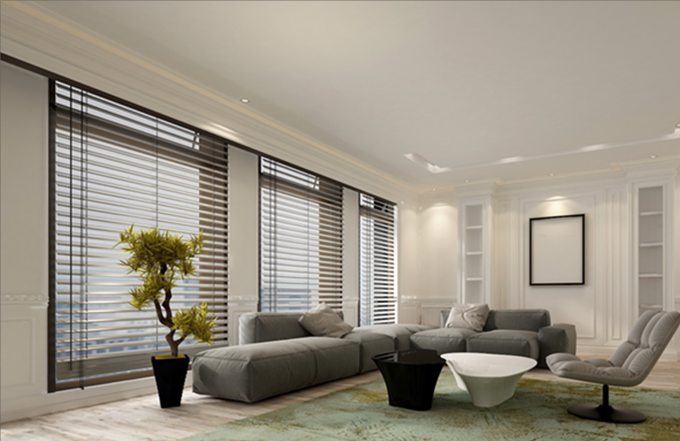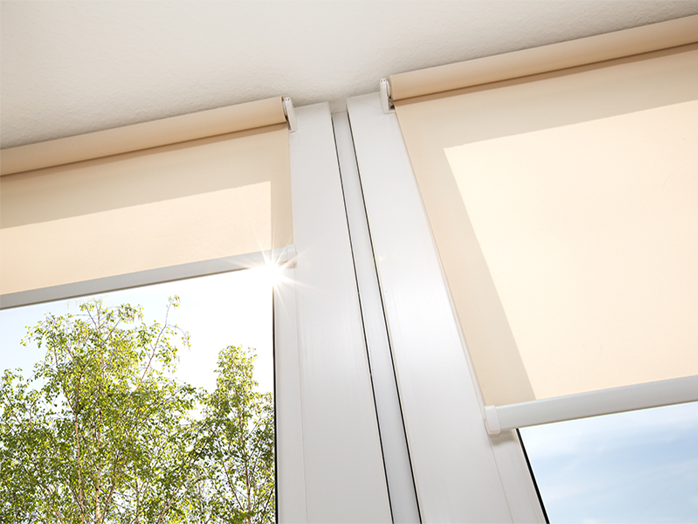
In the world of interior design, blinds are an unsung hero. These window coverings not only offer privacy and light control but also add a touch of style to your living space. Whether you’re new to the world of blinds or looking to spruce up your existing knowledge, this comprehensive guide has got you covered. We’ll explore the different types of blinds, their benefits, and answer some common questions to ensure you’re well-informed. Let’s dive in!
Table of Contents
1. What Are Blinds?
Blinds are window coverings that come in various materials and designs, allowing you to control the amount of light and privacy in a room. They consist of slats or vanes that can be adjusted to let in or block out light. Blinds offer a practical and stylish solution to window dressing, making them a popular choice for homes and offices alike.

2. Types of Blinds
There is a wide range of blinds available, each with its unique features and advantages. Here are some of the most common types:
Vertical Blinds: These are excellent for large windows and sliding glass doors. They can be easily tilted to control the amount of light entering the room.
Horizontal Blinds: Horizontal blinds are versatile and come in various materials, including wood, aluminum, and vinyl. They offer precise light control and can complement any interior decor.
Roller Blinds: These are easy to operate and come in various patterns and colors. They are a popular choice for bedrooms and living rooms.
Roman Blinds: Known for their elegant, soft folds, Roman blinds add a touch of sophistication to any room. They are often made from fabric and are an excellent choice for bedrooms and dining areas.
Venetian Blinds: Venetian blinds have horizontal slats that can be tilted to control the angle of incoming light. They are suitable for both residential and commercial spaces.
Pleated Blinds: These are a stylish and energy-efficient choice. Pleated blinds are known for their insulating properties, making them ideal for maintaining a comfortable indoor temperature.
3. Advantages of Blinds
Blinds offer a range of benefits that make them a popular choice among homeowners and interior designers:
- Privacy Control: Blinds allow you to adjust the angle of the slats to control the level of privacy in your space.
- Light Management: You can easily regulate the amount of natural light entering a room, creating the desired ambiance.
- Energy Efficiency: Some blinds are designed to insulate your home, reducing heating and cooling costs.
- Aesthetic Appeal: Blinds come in various styles, materials, and colors, allowing you to find the perfect match for your decor.
4. Choosing the Right Blinds
Selecting the right blinds for your home involves considering factors like the room’s purpose, the amount of natural light it receives, and your personal style. Here are some tips to help you choose the perfect blinds:
- Room Type: Consider the room you’re decorating. For bedrooms, you may want blinds that provide privacy and block out light. In the living room, you might prefer blinds that allow for natural light and aesthetics.
- Material Matters: The material of your blinds can impact the overall look and functionality. Wooden blinds offer warmth and texture, while aluminum blinds are modern and easy to clean.
- Measurement: Ensure you measure your windows accurately to get blinds that fit perfectly.
5. How to Maintain Blinds
Blinds are relatively easy to maintain, but regular cleaning is essential to keep them looking their best. Here are some simple steps to maintain your blinds:
- Dust Regularly: Use a duster or a microfiber cloth to remove dust and debris from the slats.
- Deep Cleaning: Depending on the material, you can use a damp cloth or a mild cleaning solution for a more thorough cleaning.
- Inspect for Damage: Check your blinds for any damage and address it promptly to extend their lifespan.
6. Blinds vs. Curtains: Which is Better?
Blinds and curtains both have their merits, and the choice ultimately depends on your preferences and needs. Blinds offer precise light and privacy control, while curtains can add a touch of elegance and warmth to a room. Some homeowners even opt for a combination of both for a versatile window treatment solution.
7. Customizing Blinds to Match Your Decor
One of the best things about blinds is their versatility. You can customize them to match your decor seamlessly. Many manufacturers offer a wide range of colors and patterns, allowing you to find the perfect blinds that blend harmoniously with your interior design.
8. Blinds for the Modern Home
Blinds are an excellent choice for modern homes. They offer clean lines, minimalistic designs, and advanced features like remote control and motorization. If you’re looking to create a contemporary and tech-savvy ambiance, blinds are a great choice.
9. Blinds for Privacy and Light Control
Whether you need complete blackout blinds for your bedroom or sheer blinds for your kitchen, there are options to cater to every need. Blinds provide a practical solution for privacy and light control in any room.
10. Child-Safe Blinds: A Must-Have
For families with young children, child-safe blinds are a necessity. These blinds come with cordless or motorized options to eliminate the risk of accidents and ensure the safety of your little ones.
Conclusion
Blinds are not just window coverings; they are functional and stylish additions to your home decor. Whether you’re looking to enhance privacy, manage light, or give your home a modern facelift, blinds offer the perfect solution. With a variety of types, materials, and customization options, there’s a blind for every need.
Now that you’re well-versed in the world of blinds, let’s address some common questions:
FAQs
- Are blinds easy to install? Installing blinds is relatively straightforward and can be a DIY project. However, if you’re unsure, it’s best to consult a professional for a perfect fit.
- Can I wash my blinds? The cleaning method depends on the material. While some blinds can be wiped down with a damp cloth, others may need professional cleaning. Always check the manufacturer’s recommendations.
- What’s the average lifespan of blinds? The lifespan of blinds varies depending on the quality and material. On average, blinds can last anywhere from 5 to 15 years.
- Are blinds a good investment for energy efficiency? Yes, certain blinds, like cellular or honeycomb blinds, are designed to improve energy efficiency by insulating your windows and reducing energy costs.
- Can I use blinds in humid areas like bathrooms? While some blinds can handle moisture, it’s essential to choose materials that are moisture-resistant, such as vinyl or aluminum blinds, for areas with high humidity.
Blinds are a versatile and practical addition to any home. They not only serve a functional purpose but also enhance the aesthetics of your living space. Whether you’re aiming for a modern, chic look or a traditional, cozy feel, blinds can be customized to meet your unique requirements. So, if you’re in the market for window coverings that offer style, convenience, and efficiency, blinds are an excellent choice.
